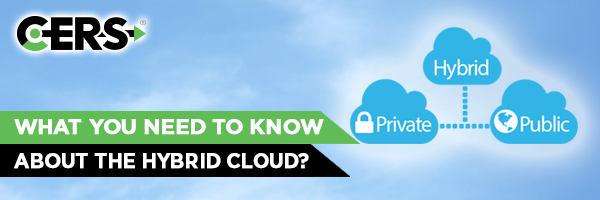Cloud computing services are becoming increasingly popular solutions for South Florida businesses of all sizes, but navigating those solutions can be overwhelming. Managing multiple platforms and vendors while maintaining strong security and meeting compliance standards can be tricky. Hybrid cloud solutions are often an ideal choice for many companies in the South Florida region, but before you sign on a dotted line, you should know just what you’re getting into with a hybrid cloud.
What is a Hybrid Cloud?
Hybrid clouds are integrated services that combine the use of public clouds and private clouds. Public clouds are platforms like Amazon Cloud services that essentially lease space on their cloud servers. Private clouds, on the other hand, are proprietary solutions managed through the company itself. Public clouds are typically much more cost-effective than private models and often allow for greater scalability. Private clouds allow the company to have more control over things like security and compliance. Merging these two types of platforms together can create customizable solutions that are attractive to many South Florida companies.
Businesses typically have three options when implementing hybrid clouds. They may choose:
- Separate cloud providers who work together to offer integrated public and private services.
- A complete hybrid package developed by a single provider.
- The company manages its own, internal cloud platform and enhances it with a public cloud vendor.
Just what would this look like in practice? If a company runs an e-commerce platform, they may operate the sales portion of their website on a private cloud where they have better control over security, but they may operate the rest of the website on a public cloud.
The Features of a Hybrid Cloud
When seeking out hybrid cloud solutions, South Florida companies should look for:
- Cost-Effectiveness – Public clouds are typically more cost-effective than private clouds. Solutions that maximize the use of a public cloud will save the company more money over the long term.
- Scalability and Flexibility – Any cloud solutions should be able to grow seamlessly as the needs of the company grow and change. Keeping all non-sensitive functions in a public cloud solution will maximize that scalability and agility.
- Security – Private clouds allow companies to have greater control over security functions, and they are often the best choice for processes that involve regulatory compliance.
Understanding the complex world of cloud solutions is easier when you have highly skilled IT professionals on your team. If you are looking for ways to improve your IT hiring process and identify top talent who will add value to your workforce, CERS can help. We are a top-tier IT recruiting and consulting firm in South Florida with a wide network of talent. Contact us today to learn more about how CERS can connect you with the best and brightest in the country.









